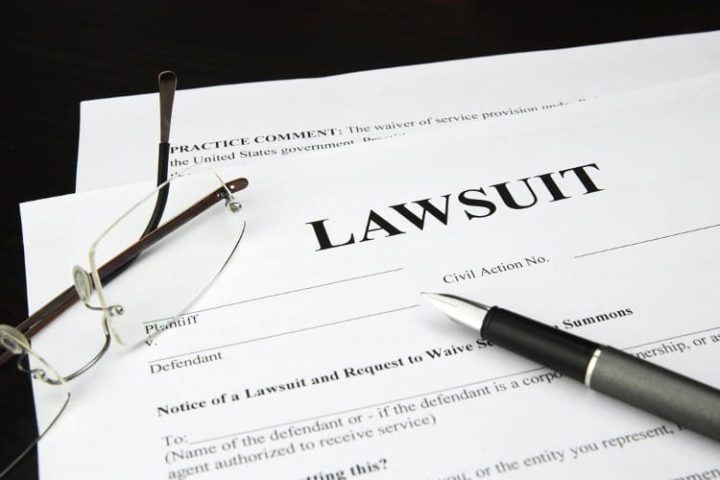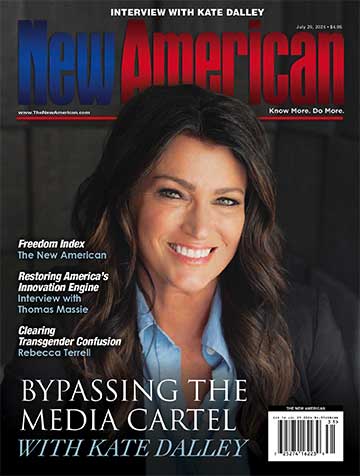
On behalf of five black students, the NAACP has sued the Shenandoah County, Virginia, School Board because it stood up against the assault on history in general and the Confederacy in particular.
In May, the board renamed two schools to honor three great Americans: Generals Robert E. Lee, Turner Ashby, and Stonewall Jackson. The NAACP seeks to overturn that democratically made decision.
It claims the renaming violates the First and 14th Amendments of the U.S. Constitution and trespasses the unconstitutional Civil Rights Act of 1964.
The Lawsuit
As The New American reported in May, county residents had no problem with Stonewall Jackson High School and Ashby-Lee Elementary School, at least until 2020.
After George Floyd died of a fentanyl overdose while being restrained by Minneapolis policeman Derek Chauvin, deranged and destructive anti-Confederate vandals destroyed Confederate statues and monuments nationwide. In Virginia, leftist Governor Ralph Northam watched as the barbarians destroyed one statue after another in Richmond.
The school board in Shenandoah County renamed the two schools. Stonewall Jackson became Mountain View. Ashby-Lee became Honey Run.
Thus has the NAACP sued on behalf of students B.B., A.C., D.D., J.D., and A.J. After a simplistic, ignorant, amateurish walk through American history, the lawsuit explains that the names offend the black youngsters, who will be forced to identify with the Confederate cause against their will.
The First Amendment, the lawsuit argues, protects the right “not to express a view with which a person disagrees. By renaming the high school, the school board compels the students to wear athletic uniforms for the Stonewall Jackson “Generals” which would “express a view with which they disagree” because because the Confederacy was pro-slavery.
As well, “students who are unwilling to wear a uniform or apparel with the name Stonewall Jackson ‘Generals,’ or are unwilling to participate on a team as a member of the Stonewall Jackson ‘Generals,’ will be excluded from full participation in certain extracurricular activities.”
The plaintiffs who wish to attend the high school “disagree with the values of slavery and racism associated with the Confederacy and do not wish to endorse those views,” the lawsuit says.
The same argument applies to the elementary school.
As for the 14th Amendment, the lawsuit claims that the “decision to restore the original Confederate names to Shenandoah County schools was motivated by a discriminatory intent or purpose” because the “Confederacy and its leadership are inextricably intertwined with the history of slavery in America and continue to be viewed as symbols of racial oppression.”
Thus, restoring the names discriminates against the black students because the renaming “creates a stigma against and feeling of inferiority among black students.”
Indeed, the names “prevent them from attending the two schools,” the lawsuit argues. Families will be “forced to move, to travel to a school located farther from home, to forgo academic opportunities … or to homeschool their children rather than endure the humiliation and discriminatory impact of attending those schools.”
The renaming violated the Civil Rights Act because its purpose was to discriminate against black students. The renaming “disparages, humiliates, and harms Black students and their families by using a government stamp of approval to honor leaders of the Confederacy.”
As well, black students won’t receive the same education as white students.
And all that means that the renaming violated the Equal Educational Opportunities Act.
White students nationwide could make all these arguments about the hundreds of schools named Martin Luther King, after an adulterer, rape accomplice, and communist sympathizer.
Anti-democracy
An interesting point in the lawsuit is its correct claim that school-board members openly ran on a platform of restoring the names to the schools.
“During the 2021 campaign for School Board, candidates seeking election to Defendant School Board stated their intention to reinstate the Confederate school names, and did so by positioning themselves against ‘cancel culture,’ ‘wokeness,’ and “political correctness’ which are coded ways to describe policies and practices that affirm racial equity,” the lawsuit argues.
When board member Dennis Barlow ran for election, he said the “school name-change issue caught my attention” and that “an era of political indoctrination was in full swing and [he] want[ed] to return our schools to quality objective teaching,” the lawsuit continues:
During her 2021 campaign, current Defendant School Board member Brandi Rutz said: “I am absolutely against ‘retiring’ the name of Stonewall Jackson.”
Rutz posted on Facebook decrying the removal of the Confederate names and asking, “Who will be the next victim of ‘political correctness?’”
Rutz posted on Facebook that, if elected, she would “openly support a move to change the names back” and shared an article from “friend and fellow Patriot, John Massoud.” In the article, Massoud stated that Rutz is “sick of the woke crowd and wants our kids to learn the R’s (Reading Writing, Arithmetic) and not [Critical Race Theory].” Massoud also denounced the name change, writing: “Only race pimps spend their time focusing on skin color or ethnicity.”
In other words, the vast majority of county residents knew what the candidates believed and intended to do. They voted accordingly.
The NAACP asks a federal court to overturn one result of that democratic election.


